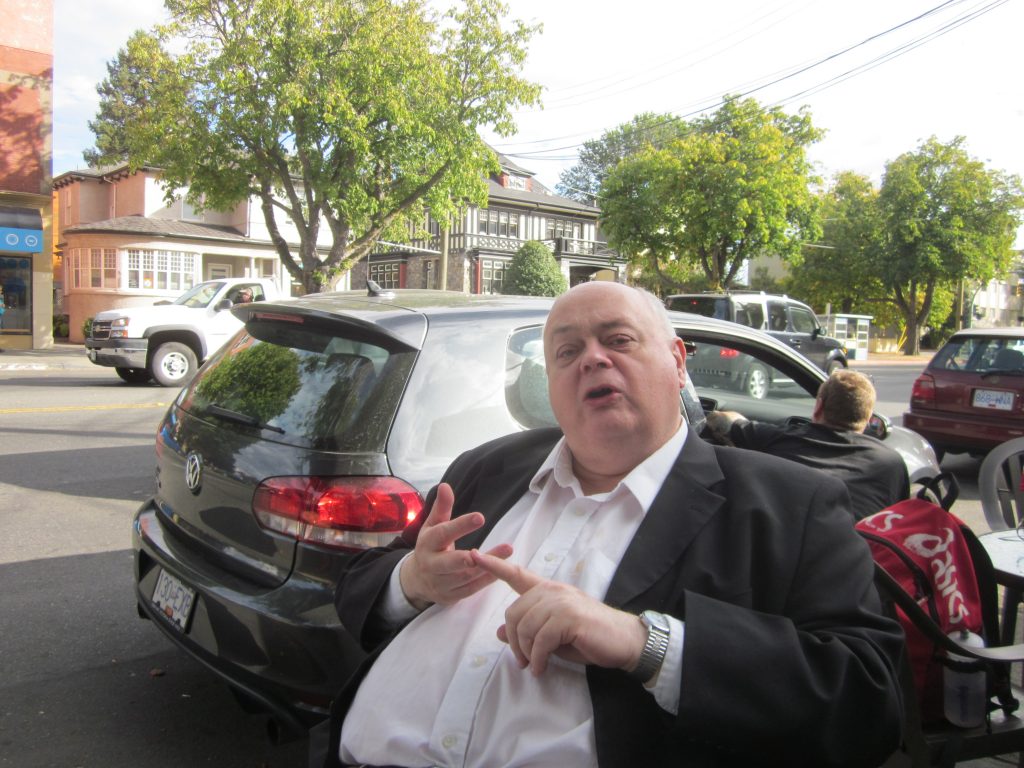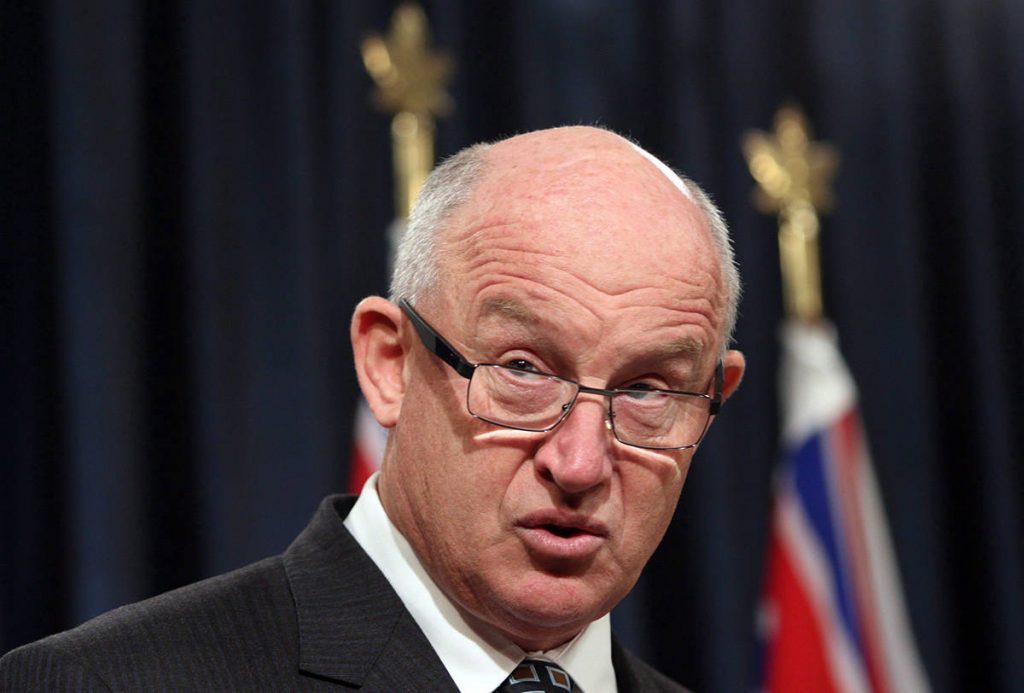On August 31st, 2020, The Tyee published an article by Michael M’Gonigle entitled “It’s Time for Greens to Reinvent Themselves.” Originally submitted to the Tyee for publication, I am now printing my rebuttal here because the impending election will likely finish knocking this off the editor’s desk.
Beginning in 2014, when it entered the legislature, the BC Green Party began voting for government plans to increase fossil fuel extraction and emissions, first with Christy Clark’s “LNG budget,” and later for the Horgan government’s budgets, energy plans and throne speeches. Most recently, the party praised the current government budget as “systemic solutions for systemic problems.” This, despite it including a 26% increase in fracking, continued subsidies for Royal Dutch Shell and its LNG plant partners and the biggest-ever planned widening of the Trans Canada Highway for single-occupancy vehicles. Today, the party touts the “Clean BC” plan as its signature contribution, despite that plan including an increase in coal exports and doubling the rate of logging and mining in the province.
The justification the Greens offer is that if they brought the government down, they might lose their seats in the BC legislature. In an exercise in the most empty, tautological understanding of politics, the goal of having Greens holding elected office is an end in itself, the purpose of the party.
The party’s embrace of the crassest and most empty electoralism has had me working through a profound sense of personal guilt. You see, the Green Party used to be a party that understood its goals not in terms of electoral success, but of social change. I was one of the leaders of a generational shift in Anglo American Green politics in the late 1980s and early 1990s that transformed the party into a primarily electoral vehicle, focused on acting through elections to achieve change.
We didn’t mean to initiate a process that would empty the party of principle and meaning. But maybe the choices my comrades and I made in seizing control of the party and refocusing it on contesting elections had led, inevitably, to this counterfeit, this ugly parody of Green politics we see enacted not just in BC, but on the floor of the legislature in Prince Edward Island and New Brunswick. If only we had listened to the party elders of the 1980s, this descent could have been avoided and Green parties in North America would be a force for good today.
Maybe we should not have made enemies of the 1970s counterculture survivors and back-to-the-landers from whom we seized control of the BC Greens through a painful and embarrassing series of confrontations between 1988 and 1994.
Then I read Michael M’Gonigle’s opinion piece this week.
And it all came flooding back: why we did what we did and why the solutions offered by the party’s boomer leadership in its founding decade (1980-89) make even less sense today.
M’Gonigle, a great environmentalist, writer and scholar, was one of the founding members of Greenpeace International and claims to have been a co-founder of the BC Greens. As the guy who actually typed-in the names and addresses from the party’s rolodex of 1983 members and the faded dot matrix print-outs of the 1984 and ’85 members to the party’s new database software in 1989, I have some doubts about that second claim. Other Greenpeace founders were on that list, though: Paul Watson, Rod Marining and Jim Bohlen.
And although they loathed each other from Greenpeace days, both Bohlen and Watson were part of the fractious alliance I put together to oppose, if not M’Gonigle, then the many active party members who shared his thinking. From 1988, when it began losing control of the party to 1993, when it disbanded, this group called itself the Ecofeminist Caucus and it embraced not just Ecofeminism but many of the nascent ideologies popular among Anglo American Greens, especially Bioregionalism, the ideology that most strongly informs M’Gonigle’s piece, as well as Murray Bookchin’s two intellectual interventions, Social Ecology and Libertarian Municipalism.
When efforts to form a Canadian Green Party began with the candidacies of Elizabeth May, Anne Trudell and others in the 1980 election as the Small Party, its backbone was, as M’Gonigle nostalgically acknowledges, back-to-the-landers and residents of urban communes. This was an era of high unemployment and economic recession but also wof generous welfare state income support programs, student grants and easy-to-obtain white collar employment for those with advanced degrees. Unemployment was being driven, at this point, primarily by deindustrialization and the so-called “energy crisis” in which high oil and coal prices were combining with the early stages of neoliberalism to produce major layoffs in the manufacturing sector. This led to double-digit interest rates on mortgages and bank foreclosures that produced a major crash in real estate prices in the early 80s.
Whether still living in the original 1970s-style rural and urban communes or in more loosely-organized “intentional communities,” of discrete, proximate dwellings sharing resources, that were taking advantage of cheap rents and foreclosures in the deindustrializing rural periphery, this movement shared a general vision.
My intellectual mentor, David Lewis, the climate change activist, giant, firewood collector and founder of the FOOLs (Friends of the Ozone Layer) who lived in the midst of this scene in the Slocan Valley, was able to cut through the many differences in the founding party base to explain their essential basis of unity: the embryo theory.
Whether one were a Bioregionalist doing permacultural subsistence farming in the Shuswap or a Marilyn French-inspired Ecofeminist co-op house in Kitsilano, the idea was that one’s domestic space was the foundation of one’s politics, not merely to the extent that “the personal is the political,” but that our primary job was to create an embryo of the society one wished to create. Bioregionalists focused on living on the land in the way they believed our descendants would need to. Ecofeminists focused on living the non-hierarchical gender relations our descendants would need to. The idea was that if we created the future society “in embryo,” the embryo would grow to the point where these alternative living arrangements would come to encompass all of society, giving birth to a new order.
It followed, then, that the Green Party was to be the most ambitious embryonic project because it was not so much an entity advocating the creation of a new society but the embryo of its future government. The crew that Lewis disparaged as “embrymorons” held that the job of the party was to create a miniature model of the governance of the future feminist confederation of bioregions. Its work was, therefore, to be the new politics. The new politics had already arrived; it just needed to be refined through experimentation.
- Electoral politics was to be replaced by participatory democracy, so the party would not elect a leader.
- Voting was to be replaced by consensus, so the party held marathon meetings to achieve unanimity.
- Countries and provinces were to be replaced by bioregions, so the party chose not to have a central mailing address or office in Ontario or BC.
- Bioregionalism also meant that, because provincial ridings were not based on valley bottom-based eco-regions, the party would have no riding associations and hold no nomination meetings.
This worked for a while because the social movements from which the party drew support were communes and intentional community networks. They had built useful, functional institutions like regional barter banks, locally. They came together regionally at gatherings like the Stein Festival and Hat Creek Gathering and, North America-wide there was even the North American Bioregional Congress (NABC), attended by thousands at its zenith.
But we know what happened as economic conditions changed. Land prices began rising again. Neoliberalism began stripping away income support programs like welfare and unemployment insurance. Professionalized music festivals replaced the summer calendar of participatory countercultural gatherings. Even for those with advanced degrees, jobs became scarcer, more insecure and more demanding of adherence to cultural mores and norms. Second wave feminism was fatally weakened by the “porn split” within and “the backlash” without. And the baby boomers got older, more jaded, more tired, more conservative.
Before the Ecofeminist Caucus and their counterparts outside BC lost control of the Green parties of Anglo America, the institutions from which they drew strength withered first. NABC died. Communes and intentional communities flew apart. The rural counterculturalists who remained had to make new accommodations and alliances in collapsing rural communities as mills closed. Former dissidents became the pillars of communities, chairing library boards, running local museums and accepting seats on the Chamber of Commerce and Cattlemen’s Association.
And there was a new wave of Greens, younger people like me, whose politics was motivated by a profound sense of science-based urgency. The Antarctic Ozone Hole opened, then the Arctic Ozone Hole. As the G7 smashed the power of OPEC, the “energy crisis” was replaced by rapidly rising carbon emissions from the coal and oil sectors. A mainstream politics of energy conservation and transition to renewables vanished with the Carter presidency. Not only was there a neoliberal consensus across the spectrum in favour of austerity; the NDP of Roy Romanow and Mike Harcourt were at the forefront of North America’s first fracked gas boom.
For us, it was not enough to work for long-term change. Human civilization was a car flooring the gas off a cliff and someone had to apply the brake. Immediately. And one of the few points where one could exercise immediate pressure was electoral politics. It seemed to us a gross act of negligence for those not interested in doing electoral politics to control a mechanism legally constituted for the purpose of running candidates in elections. Our response to the Greens who identified with M’Gonigle was “do your embryo politics in movement groups; just let us run candidates and try to move the mainstream political discourse, maybe even elect a few people.”
The counter-argument we faced was that somehow the Green Party running candidates was inhibiting others in the movement from practicing the politics of the embryo. But nobody has ever been able to explain how having a Green Party genuinely fight an election without tying both of its hands behind its back inhibits the kind of organizing M’Gonigle and company favour. But we didn’t so much win the argument for an electorally-focused Green Party; the embryo-ists were already collapsing, as a set of linked social movements, due to changing material conditions in North American society.
Today’s Green Party is worse than useless. But trying to construct a time machine to 1980 is not going to help. The reason the Greens are such a problematic force has to do with their decision to align with the emerging professional class produced by the Third Way austerity programs of the 1990s and 00s. Today, the Greens are a party of managers and aspiring managers of the QuaNGO (quasi-non-governmental organization) sector, organizations like BC Spaces for Nature, that blossomed under politicians like Mike Harcourt, under the patronage of family trusts like the Tides and Maytree Foundations or even the sponsorship of Big Oil, like the Pew Charitable Trust, which emerged as a major funder of BC’s environmental movement in the mid-90s.
Yet, despite the sorry state of green electoral politics in this country, we see the rise of a vibrant new, holistic green politics. Thousands of young people have been in the streets this past year, staging climate strikes, demanding a Green New Deal, shutting down ports to stop pipelines, making common cause with indigenous communities to protect their land and stop the genocide they face from a militarized RCMP. They have shouldered past the NGO executive directors, the Green MLAs and city councilors, past those who claimed to be leading them to forge a new politics that responds to the social and economic conditions of the present, and to the escalating extinctions, wildfires, droughts and storms that the climate crisis is producing.
That’s why, last year, four veterans of the struggles of the 1980s that M’Gonigle is seeking to re-litigate founded the BC Ecosocialist Party, not to be led by us, but as a tool, a weapon, that these young people can wield. Because, like the North American Bioregional Congress of the 1980s, the Green Party is a dead organization walking, a historical irrelevancy requiring not reform but a dignified burial.





